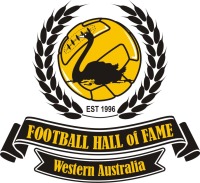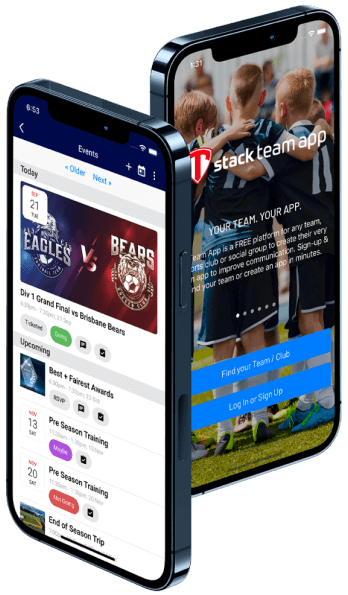Sixty years since WA football changed
THIS year (2020) is the 60th anniversary of the establishment of professional football in Western Australia - a move which totally changed the face of the game in WA.
It did not come without a certain amount of acrimony with a 'rebel' group of eight clubs leading the way in a determination to bring WA football into line with the rest of the world by introducing official play-for-pay - a drive which caused a split with the ruling body, the Western Australia Soccer Football Association, which was an amateur organisation.
The eight clubs - Perth Azzurri, East Fremantle Tricolore, Athena, Cracovia, Olympic, Swan Athletic, Windmills and South Perth - met at the WA Italian Club on July 11, 1960, to vote for a new association, which initially became known as the Western Australia Soccer Federation. (It changed to the Soccer Federation of WA in 1965).
Those clubs had been lobbying for years for a greater percentage of gate receipts from major games, which the WASFA tightly monitored by moving all the big contests to a venue it controlled, as most of them were already making illegal backhanders to their star players. This was in the form of cash under the table, and sometimes food and fuel.
As WA football historian Richard Kreider reported in his excellent book "A Soccer Century", Tricolore were heavily sponsored by the Fremantle Fishermans Co-op Society. One farthing was donated to the club for every pound of crayfish that was processed. Some players received "secret" payments of five pounds a game.
Kreider recounted in his later book, "Paddocks to Pitches", that the WASFA was totally against professionalism and, in 1959, Association president Merv Niven threatened: "Players who accept money are subject to disqualification. We are an amateur body and we have to comply with our amateur rules."
Two years earlier a semi-pro group had formed in NSW - the Federation of Soccer Clubs which argued that professionalism would help raise the standard of the game in Australia - and were offering a minimum wage of two pounds, with double that for a win. By 1963, Tricolore were offering their players ten pounds as a bonus to win the league.
The national body, the Australian Soccer Football Association, was greatly concerned about the 1960 WA breakaway as they believed the disruption could chaos with fixtures and in turn jeopardise the money that they received from providing fixtures to the British Soccer Pools. But the national rulers would also bow to professionalism a few years later and change its name to the Australian Soccer Federation.
Azzurri club secretary Julius Re was one of the main driving forces behind the 1960 split, and he became secretary of the new body, while Tricolore delegate Lou Ricci was appointed registrar. Both went on to become major players in the revamp of the game in WA with Re, in particular, being credited with having the vision to make WA a key State in the politics of football in Australia. He was instrumental in WA becoming the first Aussie State to enter a team in an Asian tournament (the 1967 Merdeka Cup in Malaysia) and in securing a game against Manchester United in front of a then record crowd at the WACA Ground in the same year.
Re was also a foundation member of the Australian Soccer Federation for 10 years and President of the SFWA for eight years. Ricci was President of Tricolore for many years and later became head of the Soccer Administration of WA. He was also influential in WA obtaining a National Soccer League licence which, of course, was taken up by Perth Glory in 1996.
Considering they were the pacemakers in the push for change in WA football, it was perhaps appropriate that Perth Azzurri should win the first WASF league title in 1960, although only on goal difference from Windmills.
The Azzurri squad in 1960 included Hall of Fame inductees-to-be Graham Oughton, John Birighitti, Don McArdle and Nino Segon, who scored a hat-trick in their first game in the new Federation, a 5-3 win over Olympic. They were coached by Bert Robertson and Renato Del Basso was the captain.
Azzurri also won the new D'Orsogna Cup, with Segon getting four in the 7-3 triumph over Tricolore. The cup was initially briefly known as the Smallgoods Cup and was sponsored by smallgoods giant Tom D'Orsogna, who would become president of Azzurri in 1961.
The WASFA continued to function for three seasons, but eventually their clubs decided to join the "Big Eight", who were, after all, the best known, and best supported, teams in WA. By 1963 the Western Australia Soccer Federation was in complete control of local football with 32 clubs and three senior leagues (plus reserve leagues). Support for the WASFA, which had been the ruling body for 40 years, had dwindled to a handful of clubs and it had no option but to fold. Professional football in WA had well and truly arrived.
The bitterness of the split took some time to heal - but WASFA secretary Des Abraham apparently never accepted the change in the game and it was rumoured that he discarded all the governing body's official records, dating back to 1896, on a Cottesloe rubbish tip. They were never found.
**To mark the anniversary of the establishment of semi-pro football the Committee of the Football Hall of Fame WA will publish a series of articles in coming months highlighting the major events that lit up the game and helped shape it from 1960 onwards.
The series will be titled "Remember When".
PIC ONE: Azzurri's 1960 squad. PIC TWO: Julius Re is feted by Malaysian leaders at the Merdeka Cup. PIC THREE: Tricolore's Lou Ricci. PIC FOUR: Des Abraham with State team players.














Comments
Comment Guidelines: The SportsTG Network is made up of players, families and passionate sports followers like you who have a strong opinion about sport. That's great - we want you to have your say and share your thoughts with the world. However, we have a few rules that you must follow to keep it fun for all. Please don't be rude, abusive, swear or vilify others. Apart from some pretty serious sport sanctions, we also can ban you and report you if things get out of hand. So play fair and have fun, and thanks for your contribution.